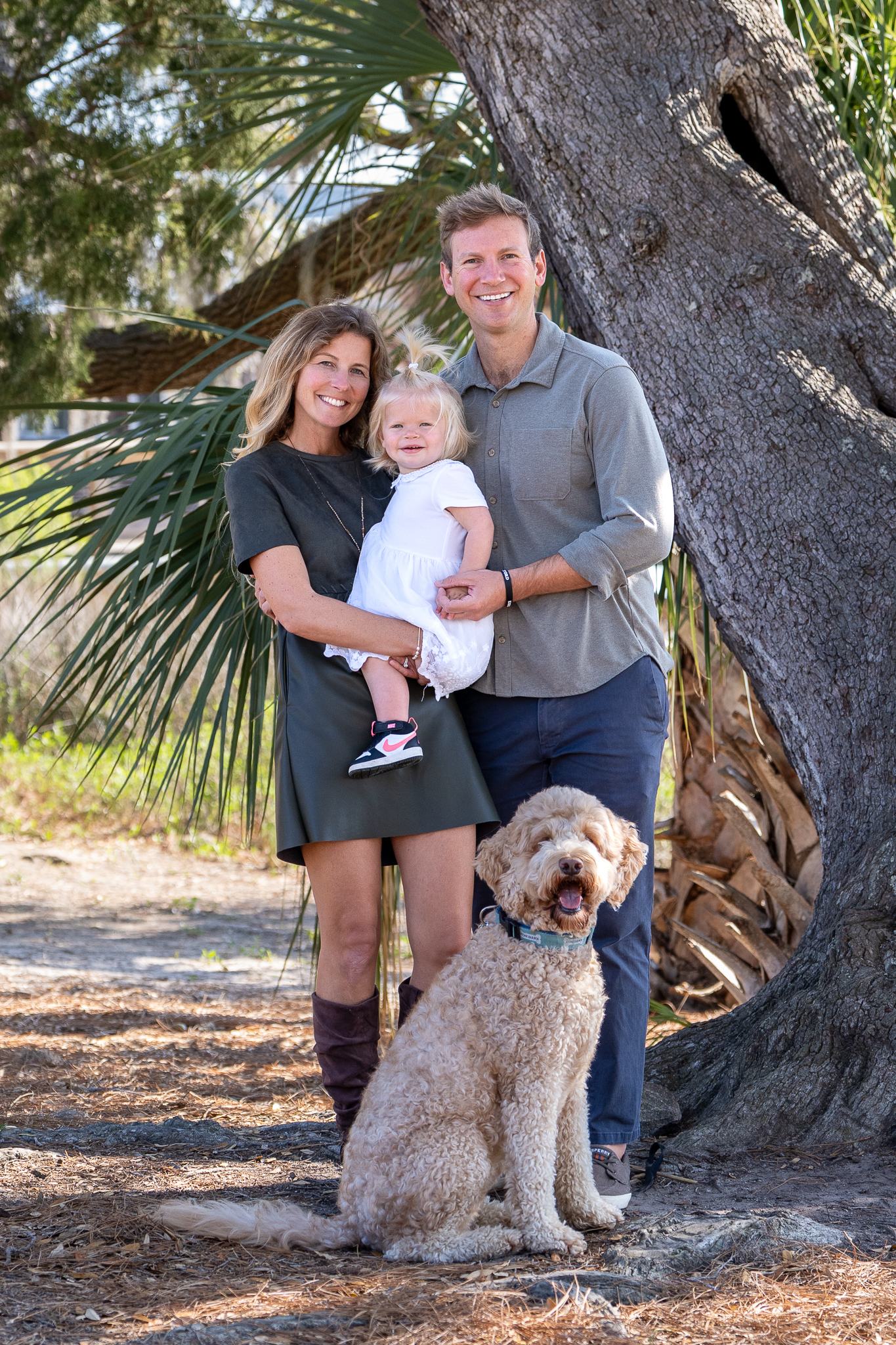Get to Know Kellyann Morgan
Owner of Focus Coaching

Welcome to the community Kellyann! Can you start by explaining, in simple terms, what "executive functioning" is and why it's so important for both children and adults?
Thank you! My family and I are already loving life on DI. Executive functioning refers to a set of mental skills that help us get things done. Think of them as the “CEO of your brain”—they help you plan, organize, focus, remember details, and manage your time and emotions. These skills are essential because they enable us to set goals, solve problems, and adapt to new situations in school, work, and daily life. Without strong executive functioning, it can be challenging to reach your full potential.
What led you to become an executive functioning coach? Was there a specific moment or experience that inspired you to pursue this path?
I began coaching students one-on-one as a boarding school teacher. Living on dorm gave me the chance to help incredibly talented students navigate a rigorous curriculum alongside sports, concerts, community meals, and service commitments. When I moved to New York City for graduate school, I joined an executive functioning company that refined my coaching skills and gave me the neuroscientific background to support a broader range of students.
I began coaching students one-on-one as a boarding school teacher. Living on dorm gave me the chance to help incredibly talented students navigate a rigorous curriculum alongside sports, concerts, community meals, and service commitments. When I moved to New York City for graduate school, I joined an executive functioning company that refined my coaching skills and gave me the neuroscientific background to support a broader range of students.
How did you come to run a network of executive functioning coaches throughout Charleston?
In my early days of EF coaching, I really valued being part of an organization where I could learn from psychologists and collaborate with other seasoned coaches—because let’s be honest, no one has all the answers! Since executive functioning coaching is still relatively new in Charleston, I created Focus Coaching as a trusted network where coaches can engage in professional development and families know they're getting more than one person’s expertise.
In my early days of EF coaching, I really valued being part of an organization where I could learn from psychologists and collaborate with other seasoned coaches—because let’s be honest, no one has all the answers! Since executive functioning coaching is still relatively new in Charleston, I created Focus Coaching as a trusted network where coaches can engage in professional development and families know they're getting more than one person’s expertise.
Many people might not realize they struggle with executive function skills. What are some common signs or challenges that indicate someone could benefit from EF coaching?
Executive functioning challenges often show up in everyday tasks. Common signs include frequent procrastination, trouble starting or finishing tasks, or constantly misplacing items. You (or your child) might also struggle with time management, missing deadlines, or feeling overwhelmed by planning and organization. For students, a classic sign is finishing homework—but never submitting it!
Executive functioning challenges often show up in everyday tasks. Common signs include frequent procrastination, trouble starting or finishing tasks, or constantly misplacing items. You (or your child) might also struggle with time management, missing deadlines, or feeling overwhelmed by planning and organization. For students, a classic sign is finishing homework—but never submitting it!
Could you describe the general approach or philosophy that Focus Coaching takes when working with clients? What can someone expect during a coaching session with a Focus Coaching tutor?
Our philosophy is rooted in unconditional positive regard, a term coined by humanist psychologist Carl Rogers. No matter the circumstances, we believe there’s always untapped potential and a way forward. Our job is to teach the skills needed to move through challenges, while also building the confidence to pursue meaningful goals. Sessions are typically 45 minutes with a pre-set, flexible agenda. We work on time management, organization, and task initiation. For student sessions, we always send a detailed summary to parents so everyone stays aligned.
Our philosophy is rooted in unconditional positive regard, a term coined by humanist psychologist Carl Rogers. No matter the circumstances, we believe there’s always untapped potential and a way forward. Our job is to teach the skills needed to move through challenges, while also building the confidence to pursue meaningful goals. Sessions are typically 45 minutes with a pre-set, flexible agenda. We work on time management, organization, and task initiation. For student sessions, we always send a detailed summary to parents so everyone stays aligned.
Finally, for anyone in our community who might be curious about executive functioning coaching, what’s the best way for them to connect with you and learn more?
I’d love to connect—whether you’re an adult looking to feel more in control or a parent seeking support for your child. The easiest way is to book a 15-minute call through our website: www.focuscoachingservices.com. You can also email me directly at kmorgan@focuscoachingservices.com or DM me on Instagram @focus_coaching_services. Thank you!
I’d love to connect—whether you’re an adult looking to feel more in control or a parent seeking support for your child. The easiest way is to book a 15-minute call through our website: www.focuscoachingservices.com. You can also email me directly at kmorgan@focuscoachingservices.com or DM me on Instagram @focus_coaching_services. Thank you!
We’re thrilled to welcome Kellyann, her family, and Focus Coaching to the Daniel Island community! Your passion for helping others thrive is a perfect fit for our island, and we can’t wait to see the positive impact you’ll make—both in and out of the classroom.